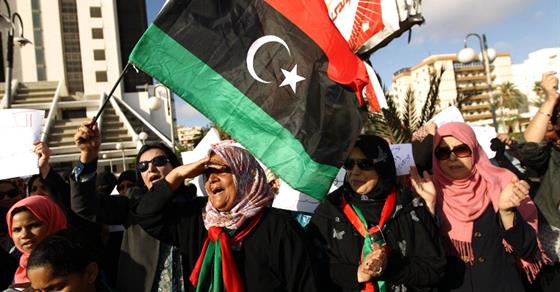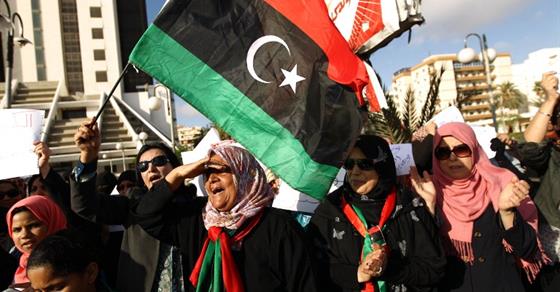The Manchester tragedy effected much more the future of Libya in so many ways than people realise. Western governments are forced to ask their intelligence agencies to refocus on Libya, a subject that had dropped in priority in both UK & US. Now due to the linkage particularly between Libyan former Al Qaeda fighters LIFG (Libyan Islamic Fighting Group) and the Manchester suicide bomber who it has now been established was part of a cell(s), Libya has gone to the top of the priority list.
To put it into context, the power vacuum left by Gaddafi’s regime’s fall subjected Libya to a power struggle among foreign state actors.
On one side, Qatar and Turkey, essentially meaning the Muslim Brotherhood Sect, have sponsored many Islamist militias, some of which are loyal to the internationally recognized albeit fragile Government of National Accord (GNA) also referred to as the Presidential Council (PC) in Tripoli. On the other side, Egypt, France, Jordan, Russia, and the United Arab Emirates (UAE) have backed the Libyan National Army (LNA), which Field Marshall Khalifa Haftar leads and fights for the Tobruk-based elected government, the House of Representatives (HoR).
The UAE designated the Muslim Brotherhood (MB) a terrorist organization in 2014, and the MB’s ascendancy in Libya and several MENA countries unsettled the UAE, Egypt and Saudi especially. These three countries would prefer MENA to be an MB-free environment.
Since mid-2014, the UAE has been a vital ally of Haftar’s. Not only has Abu Dhabi and Egypt provided Haftar’s forces with military supplies but the UAE and Egyptian Armed Forces have also carried out military strikes, land and air, against some of the LNA’s Islamist enemies. At the same time, by giving billions of dollars to Egypt’s government since 2013, cooperating with Cairo on defense issues, and working with the Kremlin to arm the LNA, Abu Dhabi has been the main coordinator with the Tobruk-based government’s foreign backers to strengthen Haftar’s LNA.
Russia has played the greatest role in Libyan affairs covertly agreeing to all of Egypt’s and UAE’s support to Haftar, much more than the West appreciate and that influence continues to grow.
On May 2, Fayez al-Serraj, the GNA/PC head, met face-to-face with Haftar in Abu Dhabi for the two rival leaders’ second meeting following Libyan Political Agreement (LPA), the UN-mediated deal that established (and appointed its members) the GNA/PC in December 2015. All hailed the meeting of May 2nd as a milestone in Libya’s path toward resolving its civil war. Yet on the GNA/PC side, there were concerns that Serraj’s talks with Haftar could weaken the LPA instead of fix it. The two agreed to meet again the following week in Cairo under the coordination of the other very important player, President Sisi. Though Haftar turned up, Serraj did not. It is rumoured he recieved death threats from his own militias so Serraj went to bide his time by going to Guinea!
To be sure, the attack carried out by a GNA-aligned “third force” militia, backed according to some sources by Qatar, that massacred 141 LNA forces on May 18 underscored how the talks in Abu Dhabi represented a a slap in the face to Abu Dhabi as well as Haftar by the extremists.
The vindictiveness with which the Islamist, mainly Misratan, “third force” militia attacked the Brak al-Shat airbase, executing brutally one by one of the LNA recruits returning from the third anniversary of Operation Dignity, was for many the last straw.
The weak GNA/PC has no real control over large swathes of Libyan territory outside Tripoli, and even in that city routine clashes between different militias underscore the internationally recognized government’s weakness. Its ability to control powerful militias is doubtful given that the GNA/PC presides only notionally over Tripoli’s governmental structures, which are themselves in fact actually divided among numerous armed militias. Should the GNA/PC leadership in Tripoli agree to share power with Haftar, some militias loosely aligned with the GNA/PC could “switch” and support and even join Haftar’s LNA.
The trigger for the very recent escalation in the civil war was no doubt the Le Brak massacre and therefore ultimately Libya may soon plunge into deeper violence and chaotic turmoil if diplomatic initiatives fail. In that event Haftar’s forces will attempt to seize control of Tripoli, even Misrata.
Haftar may cleverly choose to be less uncompromising. Time will tell. On one point Haftar will not compromise. And that is Qatar’s support through its MB Libyan “agents.” For him that is intolerable.
There is a window of opportunity in the near future for Libya’s warring sides to make room for each other and explore diplomatic avenues that would require concessions on the part of all involved actors. Hafter remains the best solution in many Libyans opinion but I believe he is more flexible than the West appreciates. This Ramadan period could be when that turning point occurs both militarily and diplomatically.


